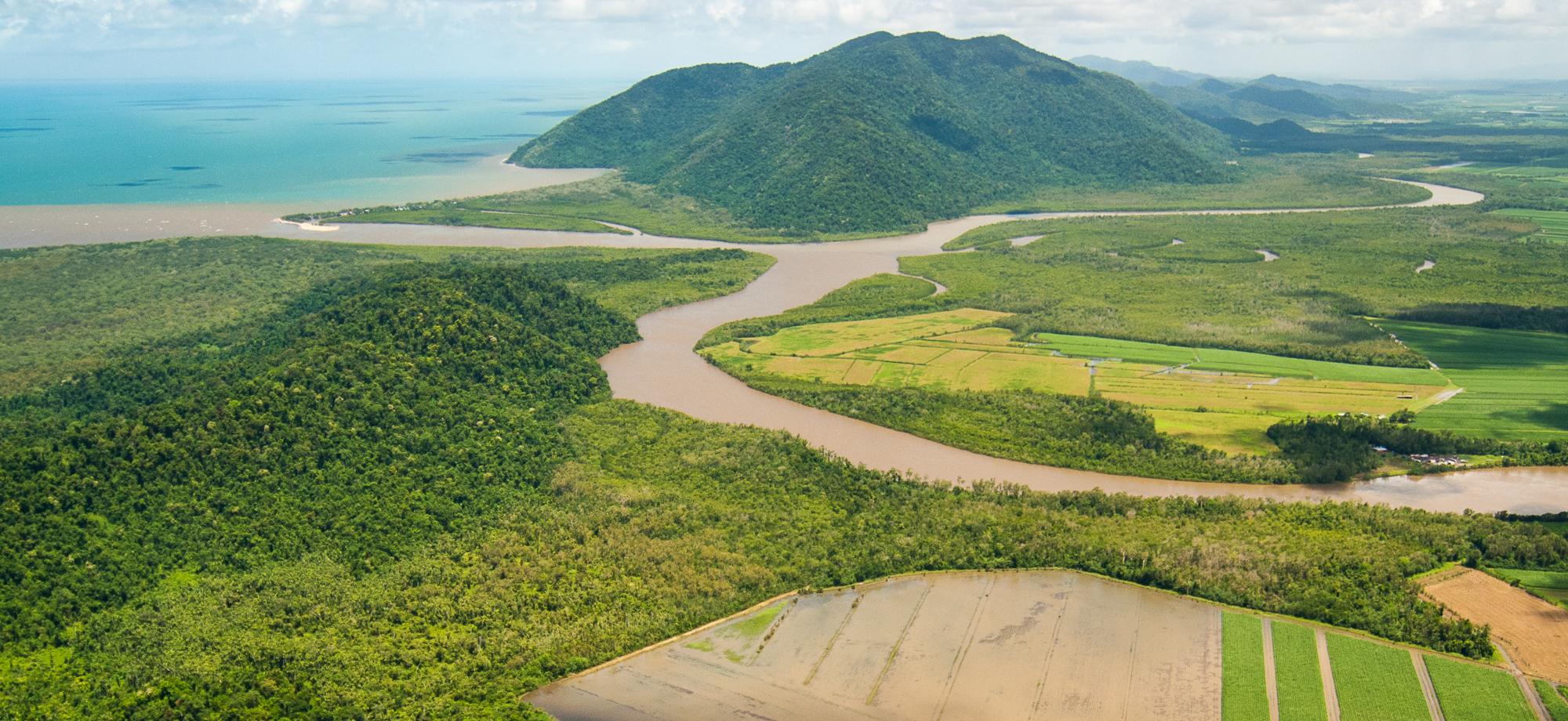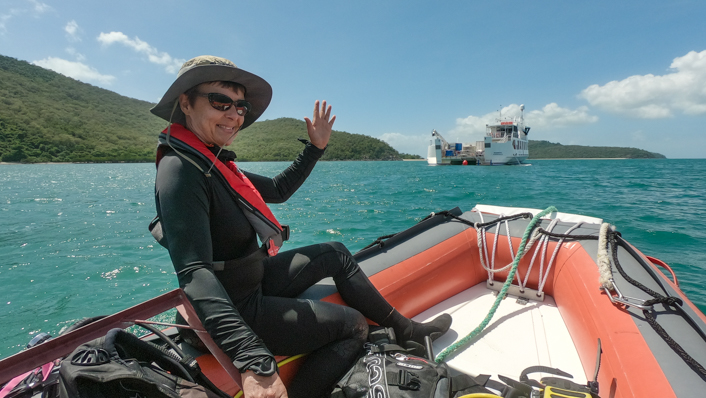By C2O Consulting, the Australian Institute of Marine Science, CSIRO, James Cook University and Griffith University
The most comprehensive and rigorous review about the effects of land-based activities on Great Barrier Reef water quality and ecosystem condition has been released today: the 2022 Scientific Consensus Statement.
The Statement brings together the latest scientific evidence to understand how land-based activities can influence water quality in the Great Barrier Reef, and how these influences can be managed.
Led by C2O Consulting and funded by the Australian and Queensland governments, the Statement involved more than 200 experts including 78 authors and 69 reviewers from Australia and overseas. The outputs are based on evidence from over 4,000 publications.
Jane Waterhouse, project lead from C2O Consulting stated that the process to develop the 2022 Scientific Consensus Statement is unparalleled for the Great Barrier Reef and has delivered high-quality outputs using transparent, robust and standardised methods.
“We adhered to internationally recognised best practices for evidence synthesis, peer review, and consensus. The methods used to develop the Statement focus on providing non-biased information that can be used by managers,” she said.
“For the first time, we assessed the confidence in the evidence. We identified that some issues have very strong foundational evidence, while others need more research. This can give policy-makers greater confidence in their approach to managing water quality issues in the Great Barrier Reef.”
Australia’s Chief Scientist Dr Cathy Foley provided oversight of the process to ensure that the approaches used were best practice, credible and robust.
“The 2022 Scientific Consensus Statement is an exemplar of the academic methods for reaching scientific consensus. The public can trust the processes used to develop the Statement, and the conclusions can be relied upon and trusted to inform decision-making.”
Experts addressed 30 priority questions examining evidence from the catchment to the reef. The questions cover values, conditions and drivers of the health of the Great Barrier Reef, sediments and particulate nutrients, dissolved nutrients, pesticides and other pollutants, as well as human dimensions of water quality improvements and emerging science. All outputs were independently peer reviewed by local, national, and international experts.
Based on the evidence, 35 scientific experts reached consensus on eight overarching conclusions, Concluding Statements and a Summary report.
Overarching Conclusions
- Historical and continuing land management and catchment modification impair Great Barrier Reef water quality through extensive vegetation degradation, changed hydrology, increased erosion, and expansion of fertilised land uses, urban centres and coastal developments.
- Pollutant loads from the catchment area to the Great Barrier Reef have increased from pre-development loads by 1.4 to 5 times for fine sediments, and 1.5 to 3 times for dissolved inorganic nitrogen (with variations depending on basins).
- Poor water quality, particularly elevated levels of fine sediments, nutrients and pesticides, continues to have detrimental impacts on Great Barrier Reef ecosystems. The greatest impacts are on freshwater, estuarine, coastal and inshore marine ecosystems.
- Human-induced climate change is the primary threat to the Great Barrier Reef and poor water quality can exacerbate climate-related impacts. Good water quality is critical for healthy and resilient ecosystems and supports recovery from disturbances such as mass bleaching and extreme weather events. Meeting water quality improvement targets within the next ten years is imperative.
- While several land management practices and remediation actions are proven to be cost-effective in improving water quality, translating these into more substantial pollutant reductions will require significant scaling up of the adoption of these actions, prioritisation of pollutant hotspots, and greater knowledge of the costs and potential co-benefits of practice adoption.
- Greater focus on locally effective management solutions can encourage faster adoption, especially when designed and delivered using collaborative approaches involving landholders, Indigenous communities, the broader community, policy makers and scientists.
- World-leading monitoring, modelling and reporting programs underpin the Great Barrier Reef ecosystems and provide essential knowledge to inform water quality improvement strategies. These programs could be strengthened and refined by increasing their spatial and temporal coverage to capture regional and local differences, provide more balanced coverage across land uses and ecosystems, improve trend analysis and quantify uncertainties.
All outputs from the 2022 Scientific Consensus Statement are available online.
Contributors to the 2022 Scientific Consensus Statement
More than 200 experts contributed to the development of the Statement, with 78 expert authors from James Cook University, CSIRO, Australian Institute of Marine Science (AIMS), Griffith University, University of Queensland, Macquarie University, Burnett Mary Regional Group, Central Queensland University, Great Barrier Reef Foundation, Queensland Government, Alluvium Consulting, University of East Anglia, University of Guam, University of Canberra, University of South Australia and independent consultants.
James Cook University, CSIRO, AIMS and Griffith University were major contributors with multiple lead authors. These institutions provide comments below.
Five experts from AIMS contributed as authors to the Statement, including four as lead authors.
Dr Katharina Fabricius, Senior Principal Research Scientist, Lead author and co-author.
“The review shows how important good water quality is to help the Great Barrier Reef recover from climate change impacts. This is particularly important in areas close to the coast, which are more susceptible to runoff and not recovering as well as reefs further offshore. Climate change is increasing the intensity of floods and droughts, making it even more challenging to minimise the runoff of pollutants.
“Managing water quality, along with carbon emissions reductions, and research to improve the recovery and resilience of corals, will help the Great Barrier Reef survive climate change.”
Original media release is available here.
Feature image: Dieter Tracey




